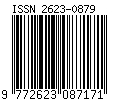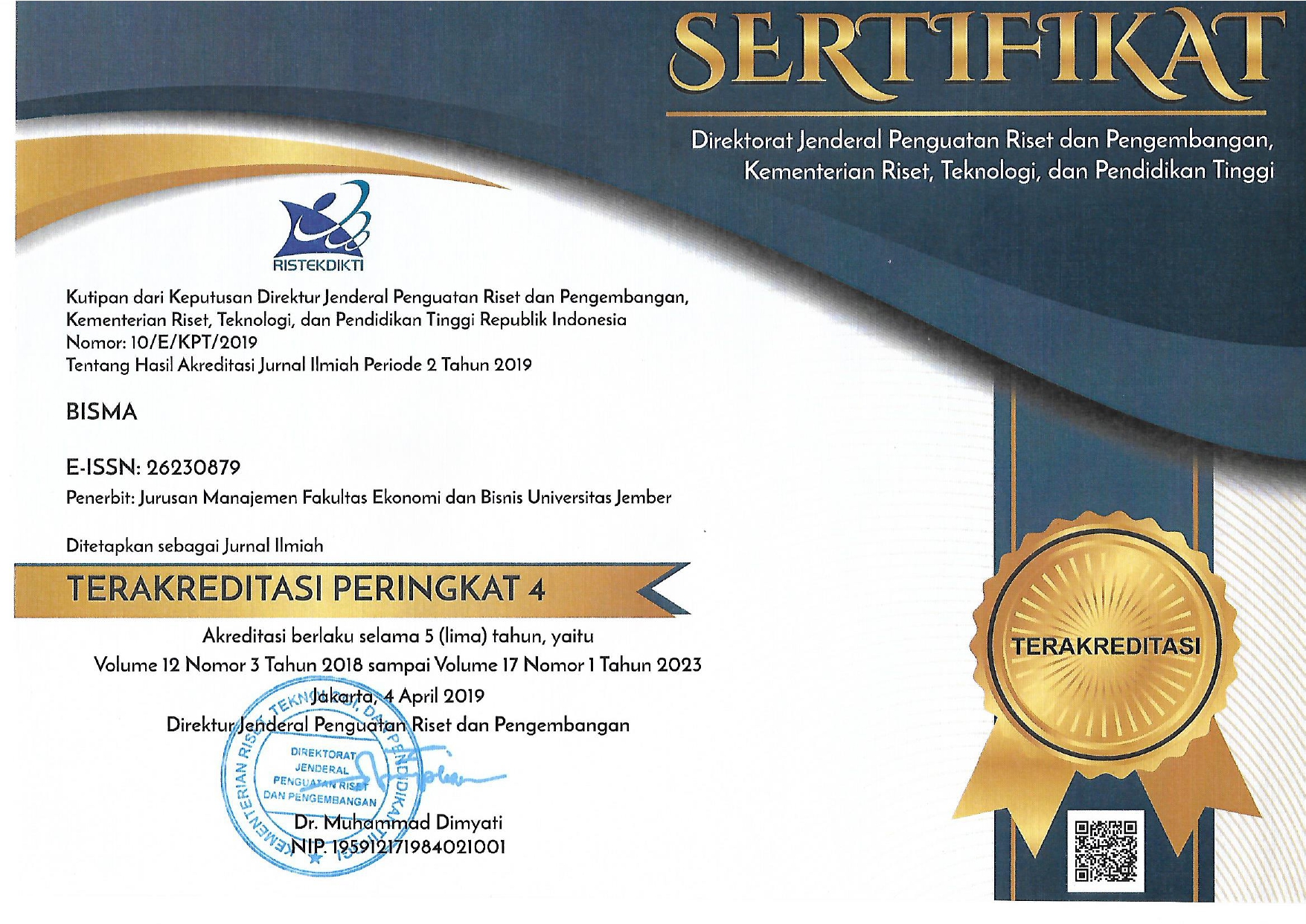THE ADOPTION OF MOBILE PAYMENT LINKAJA IN INDONESIA
DOI:
https://doi.org/10.19184/bisma.v16i2.29390Abstract
Mobile payment is one of the alternative innovative payment methods that trigger the payment revolution in Indonesia. LinkAja, as one of the mobile payments in Indonesia, still has low brand awareness compared to other mobile payments. This study aims to examine the adoption of LinkAja referring to the Unified Theory of Acceptance and Use of Technology (UTAUT) that analyse the effect of performance expectancy, effort expectancy, social influence, and facilitating conditions on behavioural intention and the effect of behavioural intention on actual use. The sample of this research was LinkAja users in East Java Province taken using a purposive sampling technique. The final sample consisted of 100 respondents collected through an online questionnaire. Data were analysed using SEM (Structural Equation Modeling) with SmartPLS software. The results showed that performance expectation, social influence, and facilitating conditions had a significant effect on behavioural intention, and behavioural intention had a significant effect on actual use. However, effort expectancy had no significant effect on behavioural intention.
Keywords: behavioral intention, mobile payment, PLS-SEM, UTAUT












.png)
 Bisma: Jurnal Bisnis dan Manajemen is licensed under a
Bisma: Jurnal Bisnis dan Manajemen is licensed under a 